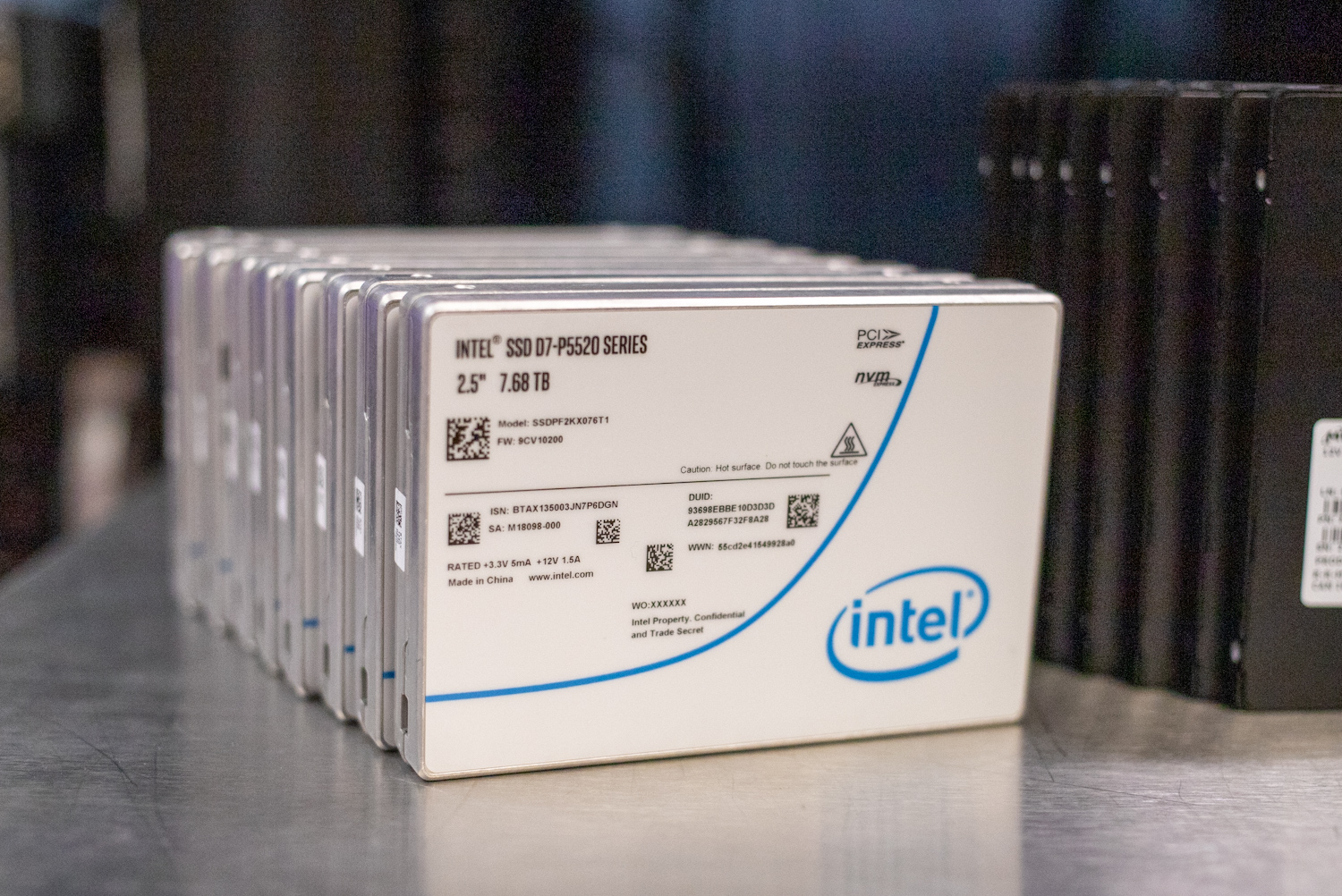With SSD prices near bottoming-out, I got the idea that it's probably a good time to replace some of the older SSDs in various machines I use. I'll be first to admit that none of these is subject to particularly intensive use, but I always like to "over-build" my machines, particularly when it comes to reliability.
I'm curious whether anyone has knowledge of recent data center models that represent a good value, towards the lower-end of the capacity spectrum (i.e. a couple TBs or less). I'm hoping to go with PCIe 4.0 drives (U.2 is fine). Brands I'm partial to are Solidigm (Intel) and Micron, based mostly on prior experience. I definitely have an open mind towards Samsung and Kioxia. I should probably allow SK Hynix, as they're now part of Solidigm.
In terms of budget... I'm looking to stay (hopefully well) under about $500 per drive. In full disclosure, I already bought an Optane P5800X as a boot drive for an upcoming build, but I'm not looking to spend that kind of money on the data drive or other boot drives.
I plan to update this thread, as I shop, but I thought it'd be interesting to solicit recommendations from others and turn this into rather a more social activity than how my online shopping usually plays out.
I'm curious whether anyone has knowledge of recent data center models that represent a good value, towards the lower-end of the capacity spectrum (i.e. a couple TBs or less). I'm hoping to go with PCIe 4.0 drives (U.2 is fine). Brands I'm partial to are Solidigm (Intel) and Micron, based mostly on prior experience. I definitely have an open mind towards Samsung and Kioxia. I should probably allow SK Hynix, as they're now part of Solidigm.
In terms of budget... I'm looking to stay (hopefully well) under about $500 per drive. In full disclosure, I already bought an Optane P5800X as a boot drive for an upcoming build, but I'm not looking to spend that kind of money on the data drive or other boot drives.
I plan to update this thread, as I shop, but I thought it'd be interesting to solicit recommendations from others and turn this into rather a more social activity than how my online shopping usually plays out.
Last edited:





